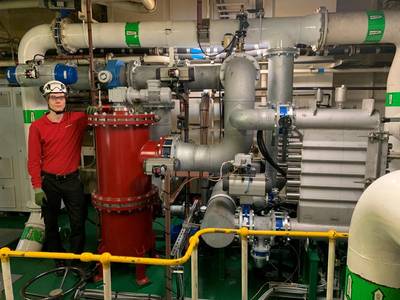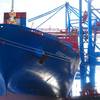Langh Tech BWMS Receives IMO Approval
Finnish marine technology manufacturer Langh Tech Oy Ab said it has received the International Maritime Organization (IMO) Marine Environment Protection Committee (MEPC) type approval certificate for its LanghBW ballast water management system (BWMS) on May 12, 2022. The type approval project was carried out in cooperation with classification society DNV.
The LanghBW BWMS uses fine filtration and UV-C treatment. According to the manufacturer, a unique feature is its ability to utilize one way treatment in sea waters and therefore conserve significant amounts of time and energy during deballasting operations. This is achieved with a highly efficient UV-reactor design and sufficient power reserve which also allows operation in extremely turbid and challenging waters. The other unique feature is the design of the reactor unit, which allows the user to manually clean all the internal parts of the reactor in few minutes time, without any tools required, Langh Tech said.
"We started the product development project in autumn 2020 and now only 18 month later we have the IMO approval in our hands," said Langh Tech Product Manager, Kim Tervonen. "We are proud to be one of the few makers in the world who can provide a BWMS with the possibility to treat the water only once. The conventional way in UV based systems is to use the BWMS unit both at intake and at discharge, but we have the IMO approval to treat the sea water only at intake, this will save a lot of energy and make deballasting very fast if needed."
In addition to the IMO MEPC type approval, the USCG approval for the system is expected to be received during autumn 2022, said Joakim Keihäs, Langh Tech design engineer, who together with Tervonen had a central role in the R&D project.
So far 18 vessels are committed to be fitted with LanghBW system during 2022 and early 2023, with more vessels to come. At the moment, six vessels with LanghBW are in operation or in installation. The first vessel fitted with the system has been in continuous operation since June 2021.












